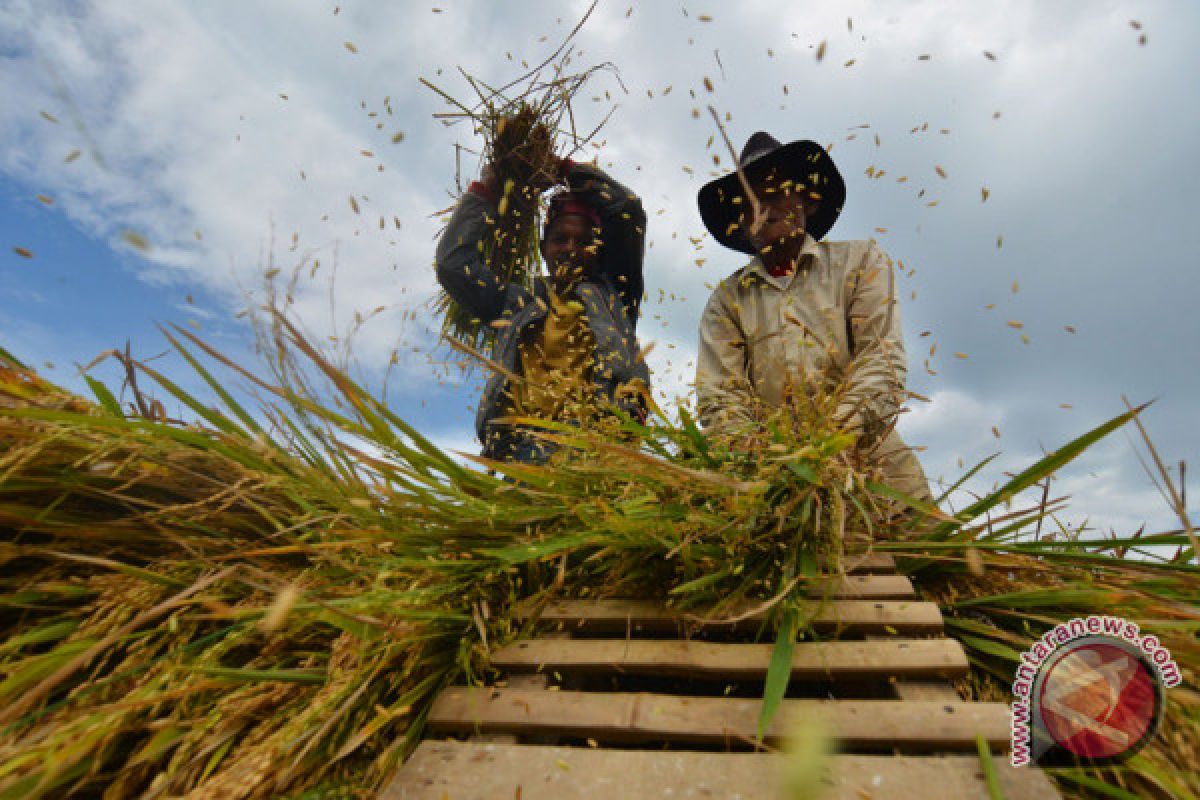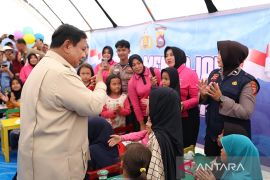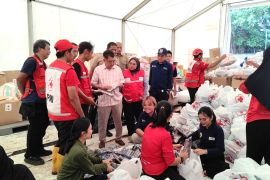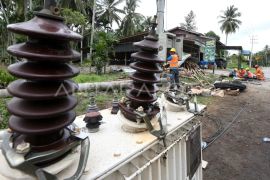Population growth will put enormous pressure on a country`s education system and other social resources and is closely related to any dramatic decline in food security.
Overpopulation in Indonesia is feared to be a major source of concern in the next century as the country`s population is estimated to reach 450 million by 2045 and is feared to reduce food resilience and security.
However, it does not necessarily have to be worrisome because the Agency for Assessment and Application of Technology (BPPT) has prepared a number of technologies to support food security in the country.
According to BPPT Director of Agricultural Production Center Arief Arianto Hidayat, some of the technologies that have been developed by the BPPT have already been used in Pelalawan district, Riau province, to increase plantation productivity.
With the technology, Hidayat explained that farmers can be more independent, and their income has so far been increasing.
One of the technologies applied in the district is the symbiosis of oil palm with cattle, that is, the palm oil can be used as animal feed after processing, while the manure from livestock can be used as plantation fertilizer.
"Thus, farmers benefit not only from oil palm, whose production is increasing, but also from the additional milk and meat production," he explained.
Hidayat explained that the BPPT has also developed a tilapia seed, which is able to grow in various water conditions, and a hybrid corn variety, which is resistant to disease, besides having shorter harvest age, so as to reduce the use of pesticides.
The leading activities for agriculture products include the innovation of food production technology based on cassava and corn; technological innovation of food processing industry; and zinc stearate, application of Bio Peat technology for peatland agriculture.
There is also a development of complete animal feed made from raw palm waste to support national protein food security, technological innovation of prawn production with neofemale technology, horticultural seeds and plantation crops, and post-harvest horticulture technology.
All the technologies that have been developed by BPPT aim to support and improve Indonesia`s food security, the condition in which all people, at all times, have physical, social, and economic access to sufficient, safe, and nutritious food that meets their dietary needs and food preferences for an active and healthy life.
Over the coming decades, a changing climate, growing global population, rising food prices, and environmental stressors will have significant, yet highly uncertain, impacts on food security.
However, these technologies will be vital to improve the living conditions of farmers and rural populations across the country.
Known to be the largest archipelagic country in the world, with more than 17 thousand islands, Indonesia is the fourth-largest rice producing country in the world, with its staple food production in balance with its own consumption.
Rice constitutes more than half of food crops production and consumption and plays a major role in Indonesian livelihoods.
Therefore, the government is consistent in promoting rice production, together with improving farmers? welfare.
In addition to BPPT`s effort to improve food security, the leaders should not only work behind the table but also make sure that food security and food sovereignty are achieved in the field.
Indonesia has the potential to improve its food security, because it has large natural resources, human resources, culture, and market, but the country still has to work hard to catch up with India, Vietnam, and even Singapore, which currently have strong food security.
But Indonesia has abundant natural and human resources, strong economic performance, and food market, and if all these potential are managed properly, the country would be able to develop its food security to be in par with other nations that have strong food security.
In addition, diversification of farm products will also enhance food security, as the country had diverse plant and animal species.
Among the local food commodities that were developed to support the food diversity program were sago, corn, cassava, sweet potato, and sorghum.
Hence, the governors, district heads, and city mayors should play an important role in national food security because they determine the pace of achieving the food security target.
Without the complete attention of the governors, district heads, and mayors, among others, the food security program will work slowly.
Food security should be viewed from a national perspective. Regions with potential in the agricultural sector must be committed to producing farm commodities to subsidize other regions, which do not have strong agricultural potential.
The food sector must also have good production and distribution systems to better address food problems.
Food production in Indonesia, in general, was in balance with the population growth, but it was barely enough and remained vulnerable.
Therefore, the country is firmly committed to strengthening global efforts to overcome poverty and food insecurity through effective, competent, and reliable global food governance.
(O001/INE)
EDITED BY INE/A014
(T.O001/A/KR-BSR/A014)
Reporter: Otniel Tamindael
Editor: Heru Purwanto
Copyright © ANTARA 2018












